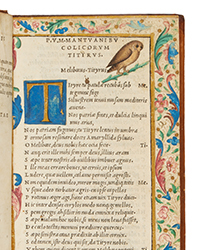Old West Books has published their Catalogue 67, December 2024 of Rare, Out of Print Books on the American West. Old West offers a collection of titles on the American West that are often obscure and hard to find. If you are looking for uncommon books on the West, this is the place to look. Here are a few of the titles offered.
We begin with a truly awful practice that maybe people didn't understand at the time. The book is Buffalo Bone Days. A Short History of the Buffalo Bone Trade. A Sketch of Forgotten Romance of Frontier Times. The Story of a Forty Million Dollar Business from Two Million Tons of Bones by M. I. McCreight, A Last Survivor, Bone Buyer and Shipper, published in 1939. If you are wondering how the buffalo went from covering the plains with millions of animals to near extinction in a few short years, here is the answer. Humans slaughtered them in numbers way beyond what were needed for food, but their bones were valuable. They made good fertilizer when crushed because of their phosphorous content. Israel McCreight writes that one hunter killed 150-200 buffalo without moving, another killed 1,500 in seven days, and one killed 120 in 40 minutes. What went from hunting for food, hides and sport in the 1870s became wholesale slaughter in the 1880s. The author also notes how the Indians were affected by the slaughter. It brought an end to their major source of food and way of life, leaving them starving and dependent on whites for mere survival. Item 36. Priced at $1,350.
The Indians had little chance, their food source wiped out, land stolen, treaties repeatedly violated by the whites, and greatly outnumbered. Still, they did not go down without a fight. One leader who held out as long as he could was Sitting Bull. He led the tribes' most notable victory, against Custer at the Little Bighorn in 1876. Still, by 1881, Sitting Bull was forced to surrender to avoid annihilation. This is an account of that surrender, Surrender of Sitting Bull Being a Full and Complete History of the Negotiations Conducted by Scout Allison which Resulted in the Surrender of Sitting Bull and His Entire Band of Hostile Sioux in 1881. A Vivid Description of Indian Life and Thrilling Adventure Written by Scout Allison in His Own Graphic Style. Scout Edwin H. Allison did a little promotion there of his writing ability. Published in 1891. Allison went to the Dakotas in 1867, married into the Brule tribe, and became a proficient interpreter. Item 1. $5,500.
Most of the suffering endured from the Indian wars was experienced by the Indians, but this is a white woman who also suffered grievously from them. The book was written by General Custer's widow, Elizabeth Custer. She lived for more than 50 years after her husband's untimely death, devoting all of them to rebuilding his tattered reputation. She never remarried. The book is Boots and Saddles, or Life in Dakota with General Custer, published in 1885. It is one of three she wrote about her husband, and contains much useful information even if not completely objective. She has inscribed the book to a “dear friend,” saying “The voice of the sentinel calling at regular intervals during the night, 'All's well,' often closed our anxious eyes.” Item 12. $2,500.
Next up is A Cowboy Detective. A True Story of Twenty-Two Years With a World Famous Detective Agency... published in 1912. The author was Charles A. Siringo, who first worked as a cowboy, wrote some books, then spent 22 years with Pinkertons' detective agency. He used disguises to hide his identity when working undercover. Among his jobs was infiltrating unions on behalf of the employers who hired Pinkertons. He considered the unions to be anarchists to justify his work against working men. This copy is inscribed “To my dear friend, Neil Brown with good wishes of the author Chas. A. Siringo Hollywood Calif Nov. 5th 1925.” Siringo used a few aliases in his book, particularly with Pinkertons as they sued Siringo for violating a confidentiality agreement. However, probably to tell his friend who the aliases were, he has handwritten “Pinkerton” for the alias of “Dickinson” he had used, and “Tom Horn” for the alias “Tim Corn.” Item 60. $850.
For a brief period of time, mail was carried overland from the east to California by fast riders. Sometimes, the stages would also carry passengers. They arose in the 1850s, but by the end of the 1860s, they were gone. The Pacific Railroad made them comparatively slow and unnecessary. This is the book that is considered “the standard history of the early stage lines.” The title is The Overland Stage to California. Personal Reminiscences and Authentic History of the Great Overland Stage Line and Pony Express from the Missouri River to the Pacific Ocean, by Frank A. Root and William E. Connelly, published in 1901. Along with the Overland Stage and Pony Express, it describes the Butterfield Overland Mail and other stage lines, early history of Colorado, stage drivers, Indian raids on the Plains, and Fort Kearny. You can still follow some of old routes where Pony Express stops are marked and ruins of Butterfield stations can be seen. This is a rare copy in the deluxe binding. Item 56. $975.
Old West Books may be reached at 719-260-6030 or oldwestbooks@earthlink.net. Their website is www.oldwestbooks.com.









